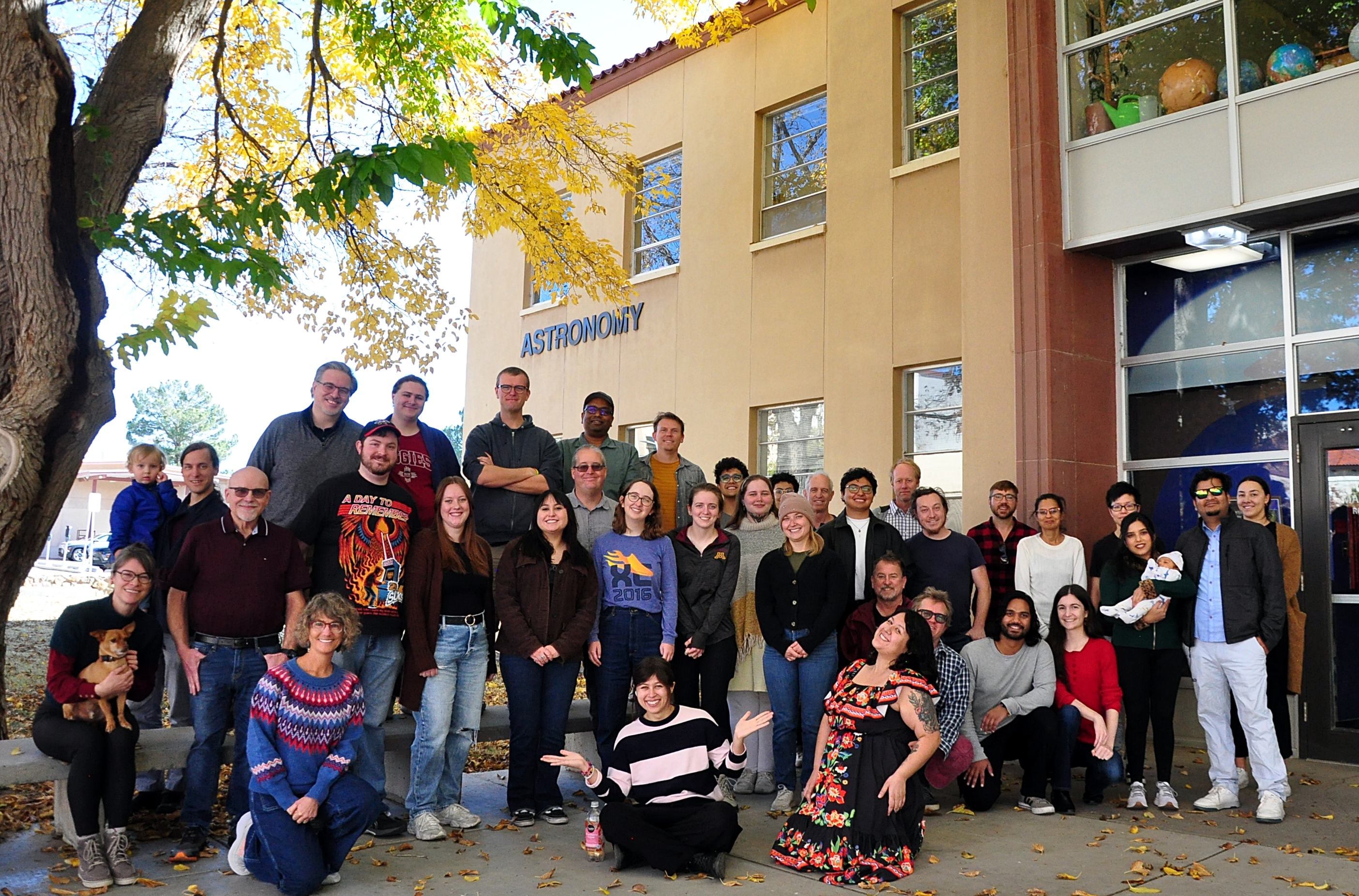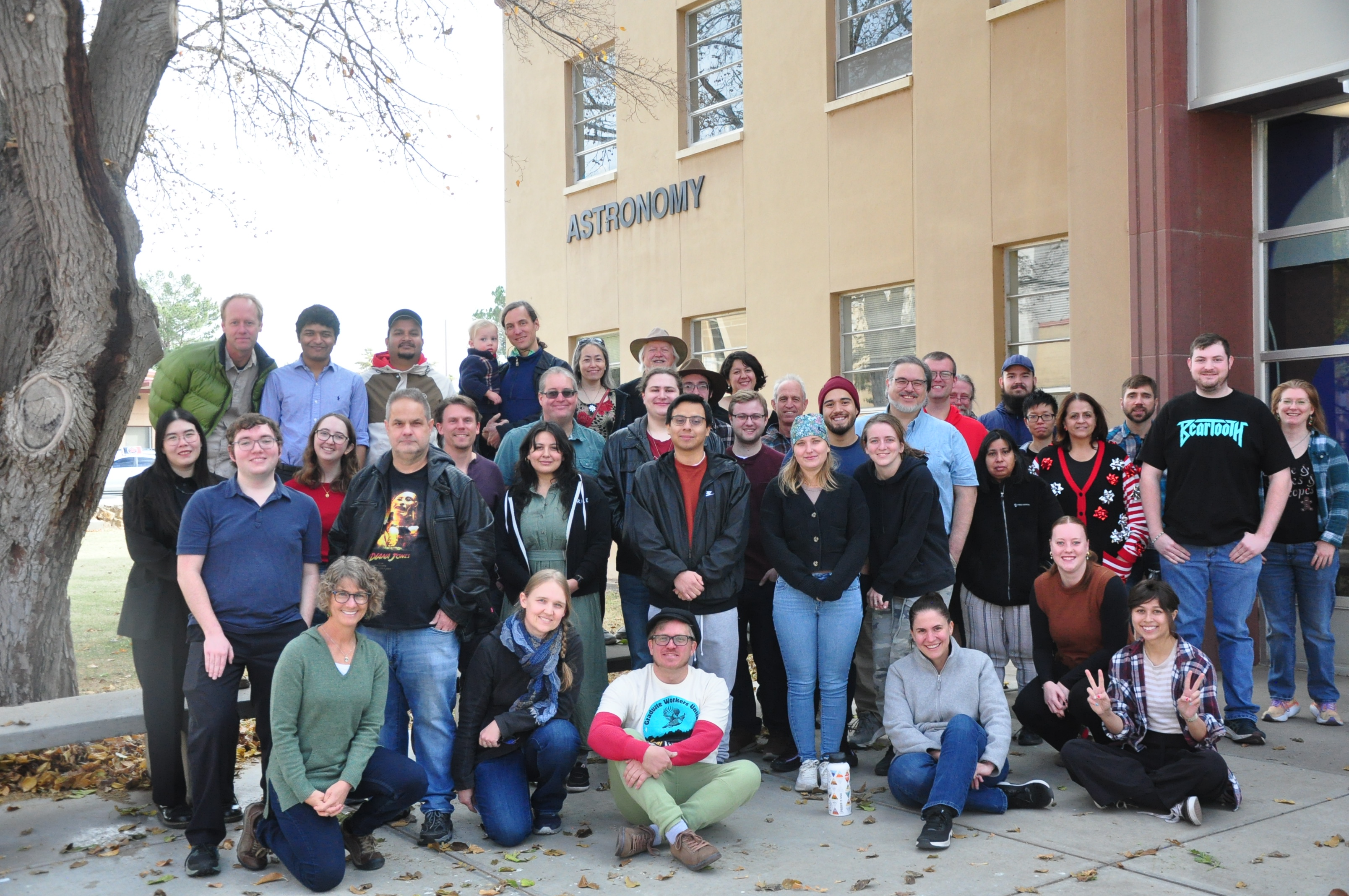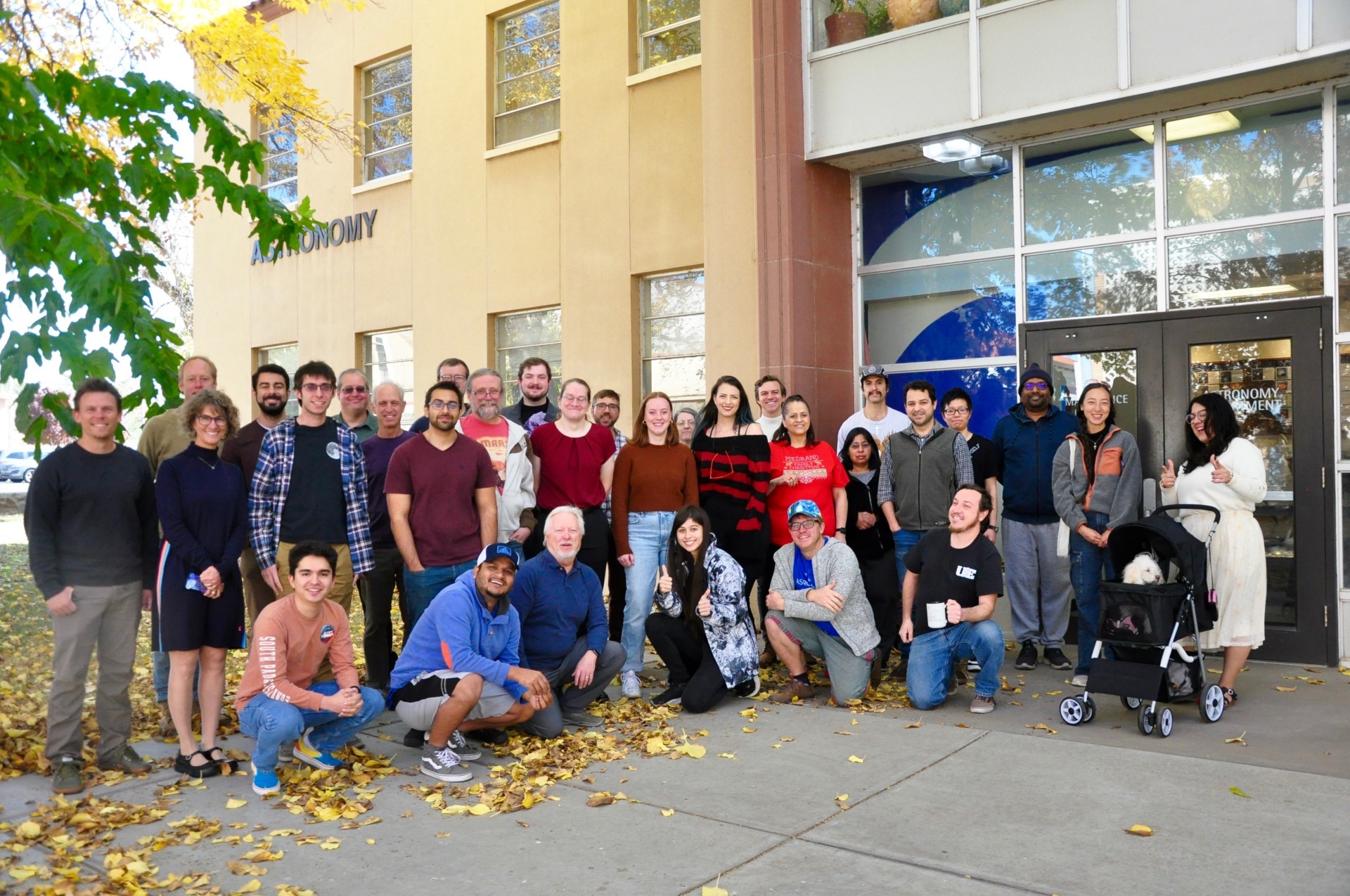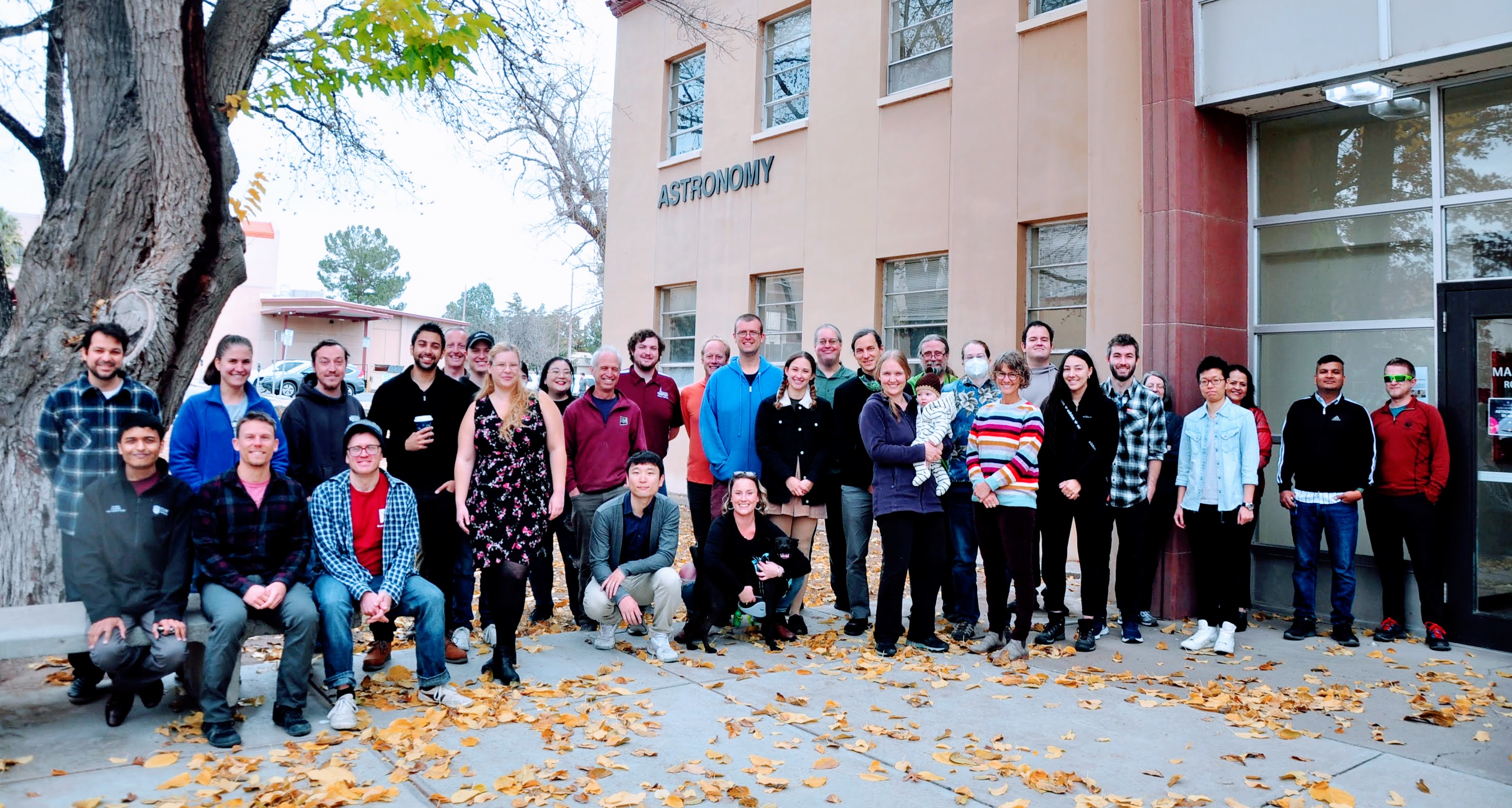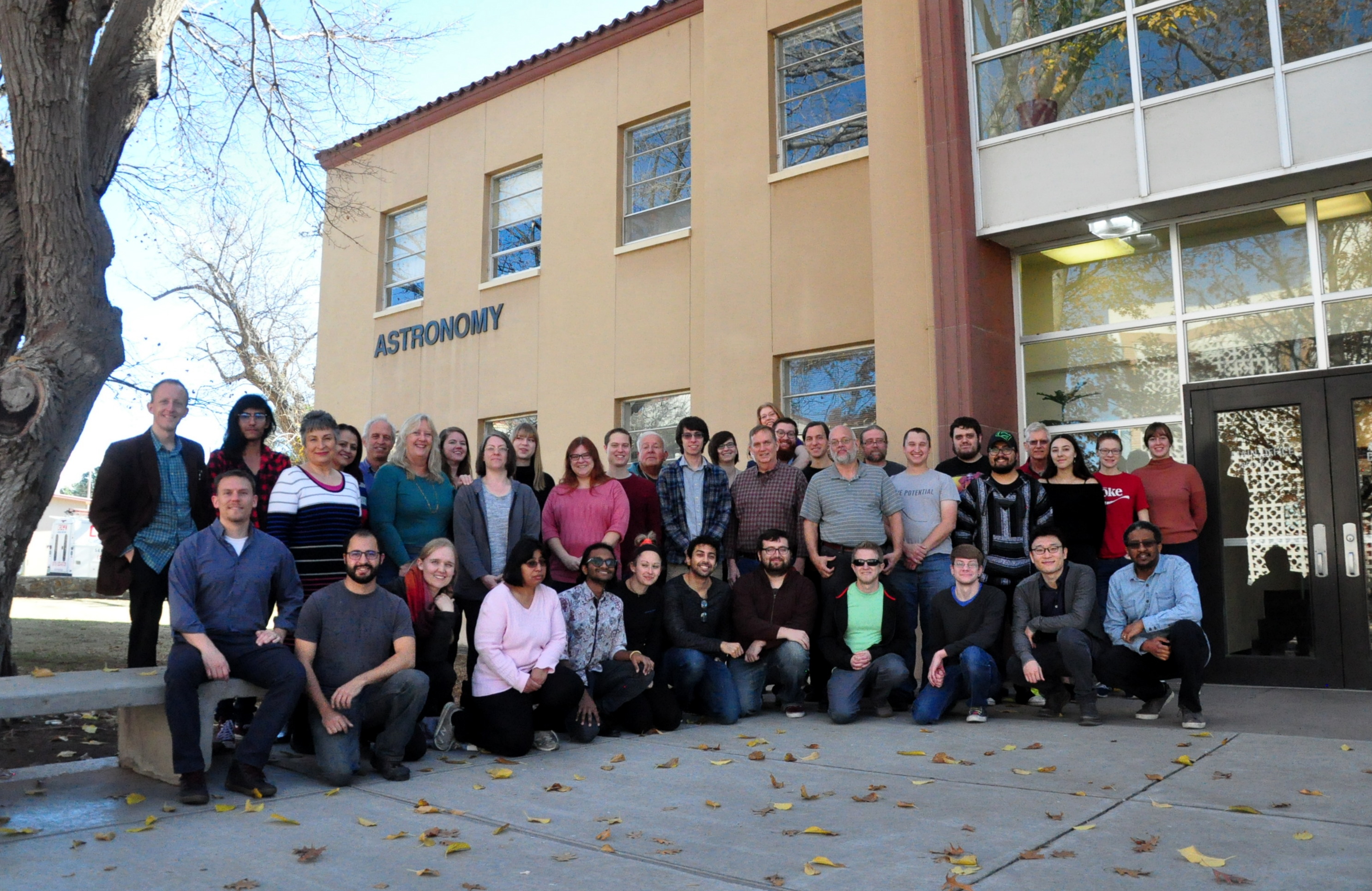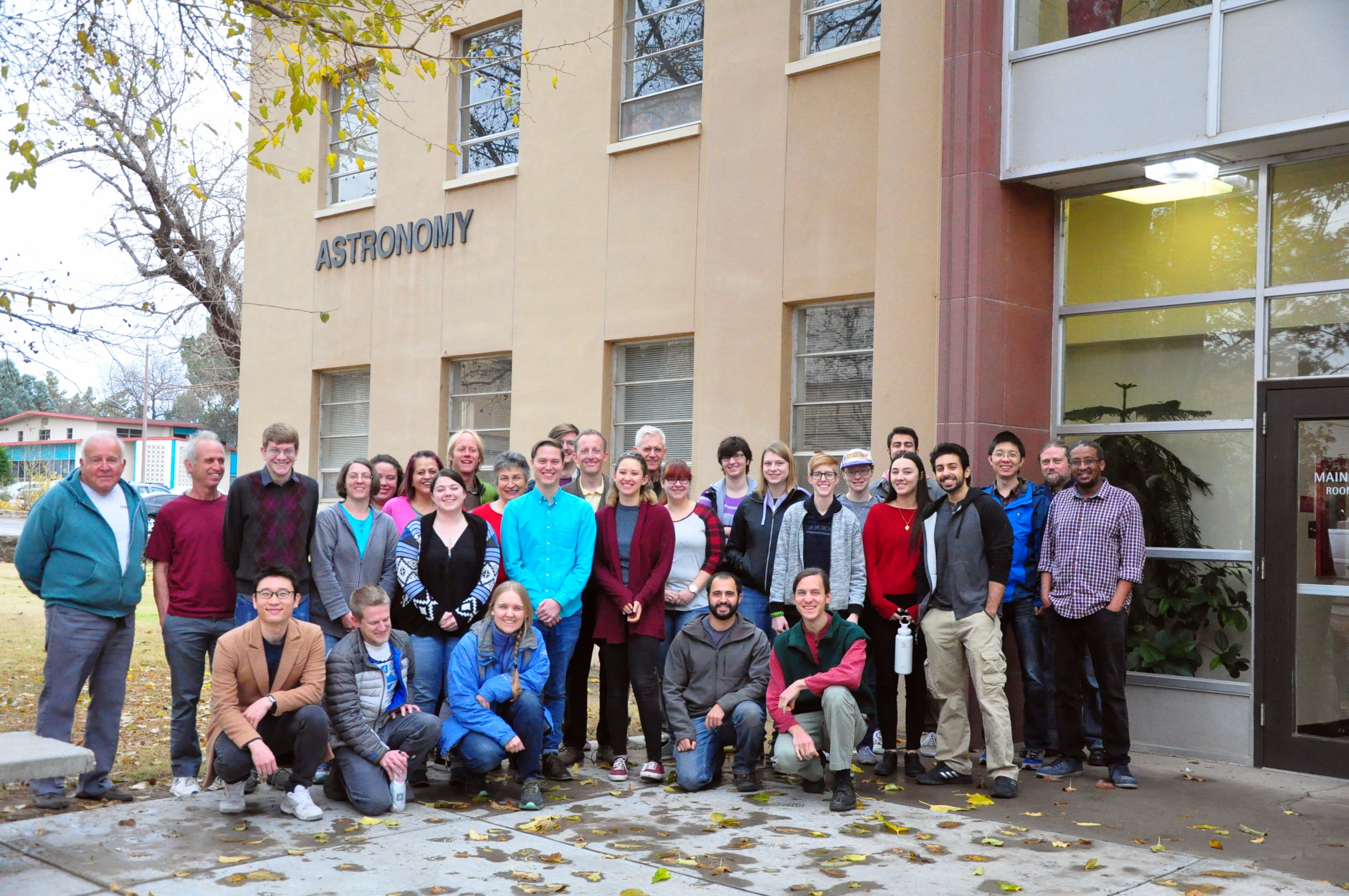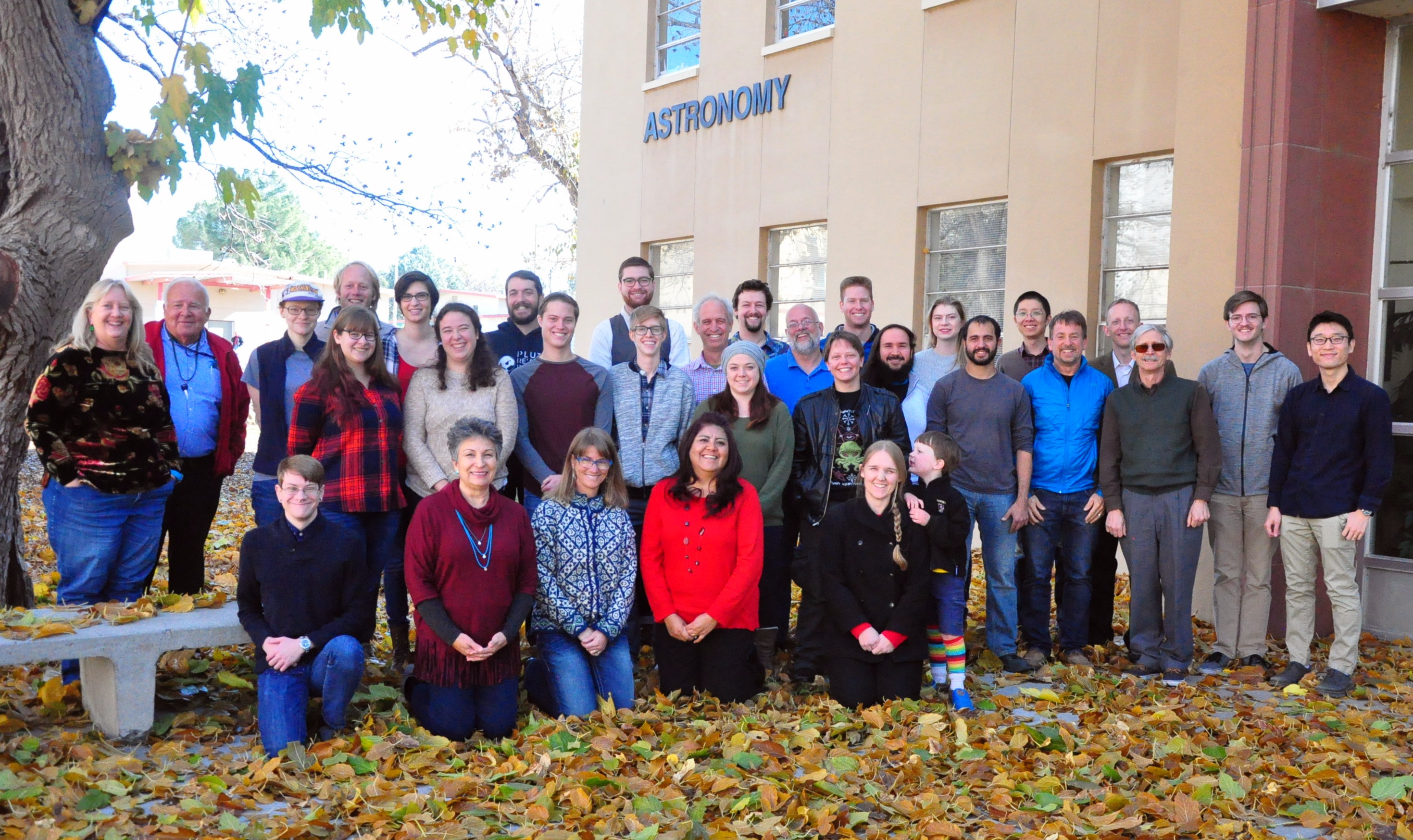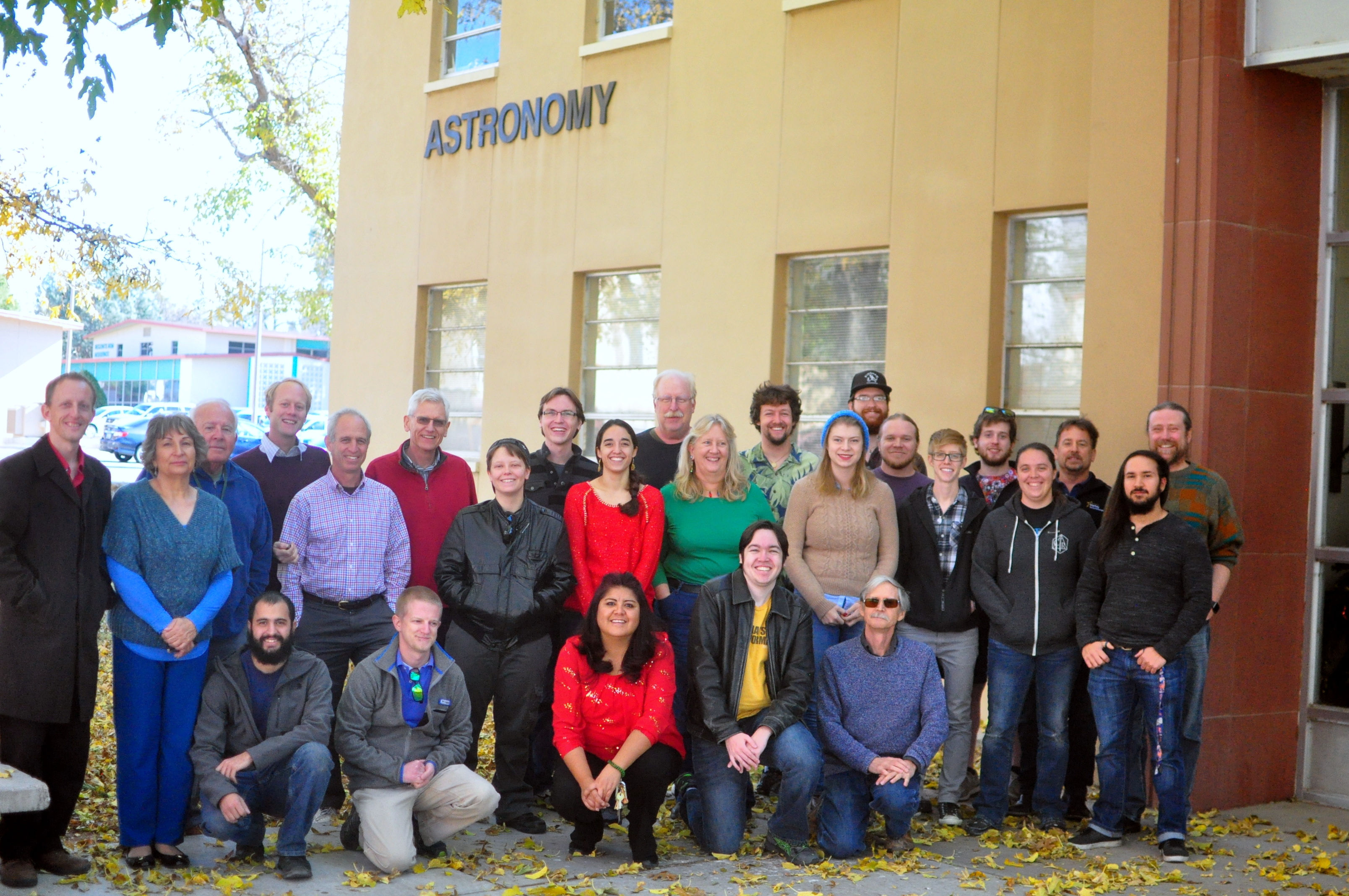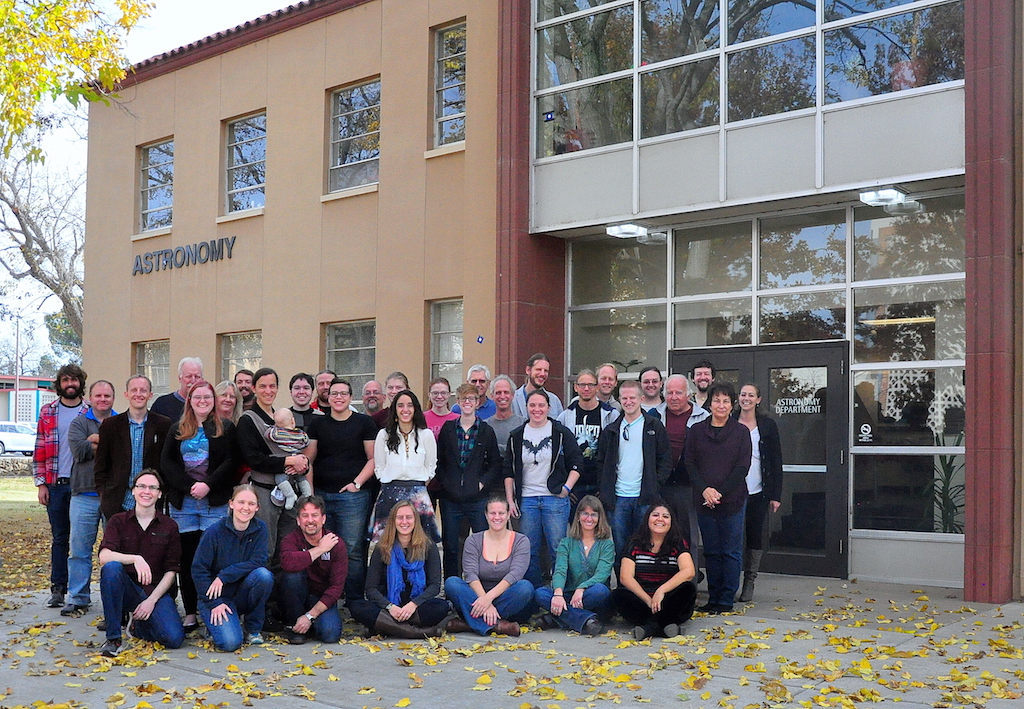General Information
The astronomy department at New Mexico State University came into existence in 1970, arising out of a research group founded in 1955 by the planet Pluto’s discoverer, Clyde Tombaugh. That early research group had a strong focus upon solar system studies. The department’s astrophysical expertise and research efforts have subsequently expanded to cover all facets of the field.
Today, the department is a site of active research across many areas of astrophysics: in theoretical and numerical cosmological studies; galactic and extragalactic studies with emphasis upon the ISM; galaxy evolution; quasar absorption lines; stellar populations; variable stars; interacting binaries; solar physics; space weather; and planetary atmosphere studies. Each of these research topics are furthered by telescope observations obtained at facilities with which the department is affiliated, many of which are within driving distance of campus.
Our mission:
The NMSU Department of Astronomy strives to develop and communicate the human endeavor to understand the Universe. We accomplish this through continuing development of knowledge in our research program, as well as through our graduate and undergraduate course offerings. Our graduate program provides students the opportunity to become deeply involved in research, and educates students in skills that are useful for a variety of careers. Our undergraduate program educates students in critical thinking in the context of concepts in astronomy. The Department provides outreach to the community to spread knowledge and understanding.
Department personnel strive to adhere to several core values:
- We recognize the value of diverse backgrounds and promote a an inclusive atmosphere through continuing discussion and awareness of challenges affecting underrepresented groups and through the adoption of inclusive policies;
- We hold a high standard of rigor in our professional scientific careers in performing and publishing research, and playing a leading role in the astrophysics community;
- Our department values communication as a key ingredient in promoting scientific thinking and in improving the training that our students receive. As mentors, we continually develop channels for communicating with students about their ongoing progress and their future options.
Our vision:
- to be a highly productive research Department;
- to be nimble, by continuing to be broad in research but aware of current trends;
- to prepare a diverse body of students for a broad range of careers including, but not limited to, astrophysics research, through rigorous training in astronomy.
